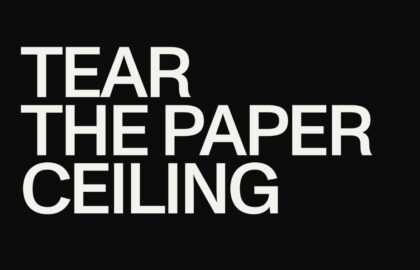Having worked with thousands of Flatiron School graduates who have successfully launched new careers in tech, we have seen that one topic strikes dread into the heart of a job-seeker more than any other: NETWORKING. Among the many reactions our Career Services team hears in response to this term:
-
“Networking is sleazy and artificial.”
-
“Why would anyone be interested in meeting me, or in what I have to say?”
-
“Why would I network with anyone who doesn’t have an immediate job opportunity available?”
These reactions come from a number of misconceptions about what networking is – but even deeper than that, they stem from a misconception of how successful people succeed. The myth that most successful people are self-made is just that – a myth. The truth is that the most successful people are skilled at building and leveraging their networks.
In Adam Grant’s book Givers and Takers, his research uncovers three styles of interacting with others:
-
Takers are interested in getting more than they give. They typically see the world as a hyper-competitive place and will look out for themselves first.
-
Givers: Givers tilt their reciprocity in the direction of other people. They are giving and generous as a way of being, rather than to get something specific from their actions.
-
Matchers: Matchers live by the tit for tat policy. I scratch your back, you scratch mine.
What he found was that the most successful people were Givers.
Give and You Will Receive
Our Career Services team has seen time and time again that job-seekers immediately become more comfortable with the idea of networking when they approach making new connections by asking themselves:
“How can I add value for this person?”
To do this, job-seekers must first take stock of the ways in which they can add value for others. The truth is, EVERYONE can add value to others – whether you’re early in your career or a tenured professional. Here are some ideas:
-
Sharing a recent activity: Some activities are nearly universal. TV, Reading, Being Outside, Travel, Cooking, Family Celebrations. Even with someone you’ve just met, by sharing a recent activity of yours, you can add value by giving them an idea for their next Netflix binge, their next meal, or their next vacation.
-
Sharing a resource: If your new connection mentions their interest in a particular topic – anything from building diverse teams to volunteering to running to civic engagement – and you know a great article or organization or app that can expand their knowledge on that topic, mention it in your conversation, or include it in your follow-up note.
-
Providing a trip down memory lane: We all love to bask in nostalgia every once in a while. If you share the same hometown or alma mater, or played the same sport or instrument, as a new connection, just the act of reminiscing about that shared experience can be a value-add.
-
Normalizing an experience: Are you both career-changers? Are you both parents? Did you both spend time in the gig economy? Humans are wired to want to know that there are other people out there who have gone through the same life experiences, especially the hard stuff. Being vulnerable and normalizing a shared experience is a way of adding value.
By expanding your ideas of HOW you can add value, you will feel more comfortable making new connections – even if your connection request includes an ask for their time or advice.
The Key to Success
Most people are uncomfortable with networking because they view it as “taking” from someone else – taking their time, taking their advice, taking their referral. You may be approaching someone new with a desire to learn from them, but by shifting your networking mindset to one of “giving,” you will benefit from:
-
A stronger reputation
-
More trusting relationships
-
Greater fulfillment
-
A larger and more useful network
Look for creative ways to add value to the people in your life, and to new people you meet. Remember: Your network is your net worth, and the best time to start networking is yesterday.
To learn more about the exact steps to take when reaching out to new people during your job search – from email templates, to LinkedIn search terms, to thank you notes – read our free Career Prep Curriculum.




